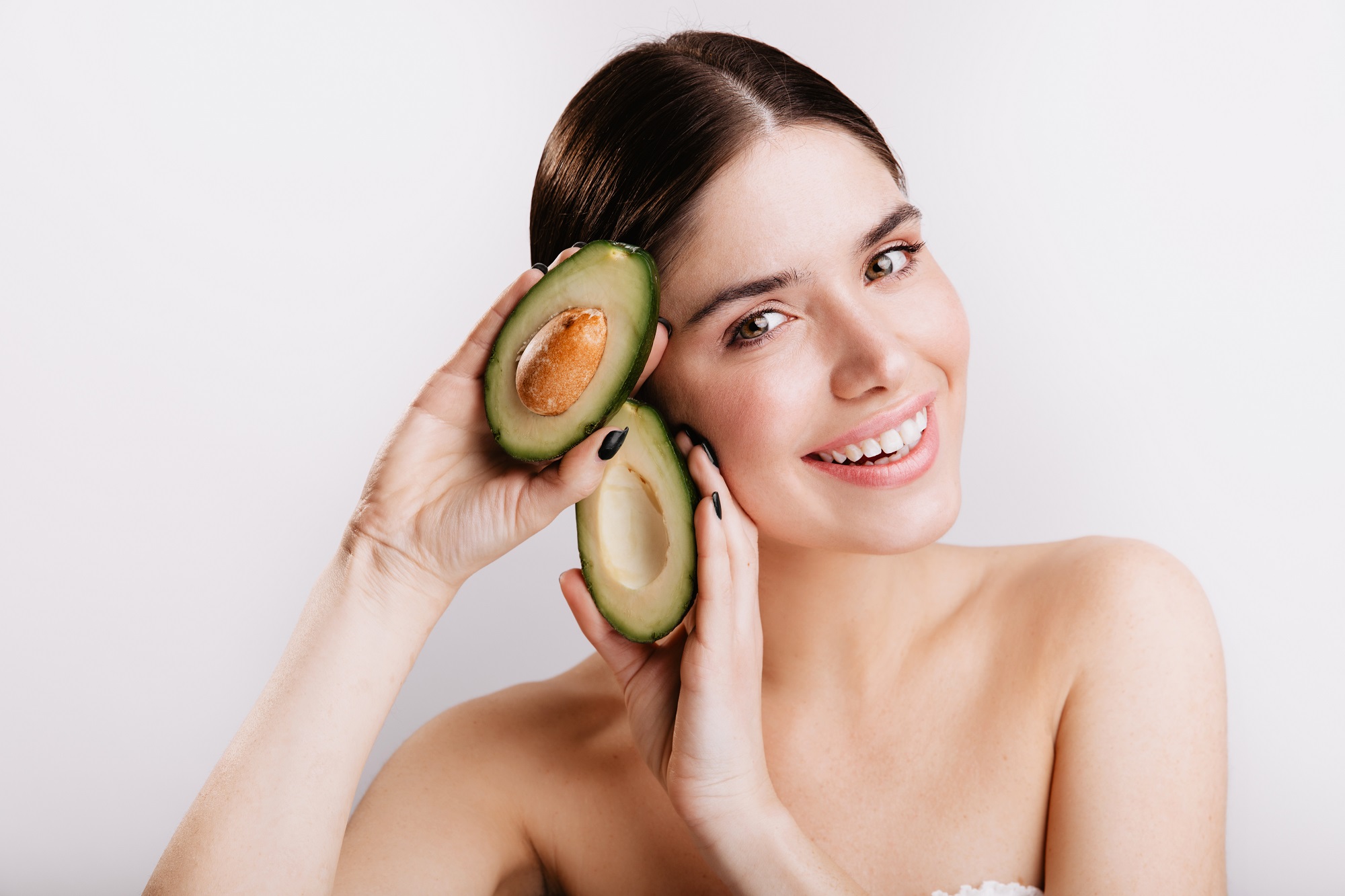Discover the truth about how your nutrition impacts the health of your skin and hair in this enlightening article. While there are countless myths circulating about the correlation between food and beauty, it’s time to separate fact from fiction.
Unveiling the truth behind these misconceptions, we delve into the scientific evidence and provide you with the real facts you need to know. From debunking the popular belief that chocolate causes acne to uncovering the skin-saving properties of certain fruits and vegetables, this article sets the record straight.
But it’s not just about what to avoid or consume – we also explore the essential nutrients and vitamins that play a crucial role in maintaining healthy hair and skin. You’ll learn about the power of antioxidants, the impact of hydration, and the surprising ways that certain foods can enhance your natural beauty.
So, whether you’re looking to clear up your complexion or promote luscious locks, let’s uncover the nutrition myths and facts that truly affect your skin and hair health. Get ready to make informed choices for a vibrant and radiant appearance.
Common Nutrition Myths Related to Skin and Hair Health
One of the most persistent myths about skin health is the belief that chocolate causes acne. This misconception has been around for decades, leading many people to avoid chocolate altogether in the hopes of achieving clearer skin. However, the scientific evidence tells a different story.

Multiple studies have examined the relationship between chocolate consumption and acne, and the results consistently show no direct link between the two. In fact, a comprehensive review published in the Journal of the American Academy of Dermatology concluded that there is no convincing evidence to support the claim that chocolate, or any specific food, causes acne. The development of acne is a complex process influenced by a variety of factors, including hormones, genetics, and stress, rather than a single dietary component.
Another common myth is the belief that greasy or fried foods can clog pores and lead to breakouts. While it’s true that a diet high in unhealthy fats and oils can contribute to inflammation and skin issues, the direct correlation between greasy foods and acne is not as straightforward as many believe. The type and quality of the fats consumed play a more significant role in skin health than the greasiness of the food itself. Incorporating healthy fats, such as those found in avocados, nuts, and olive oil, can actually benefit the skin by reducing inflammation and providing essential nutrients.
Debunking Nutrition Myths with Scientific Evidence
While some nutrition myths related to skin and hair health have been debunked, there are still many misconceptions that persist. One such myth is the belief that dairy products can exacerbate acne. This idea has been widely circulated, but the scientific evidence on the matter is inconclusive.
Some studies have suggested a potential link between dairy consumption and acne, but the relationship is not clear-cut. Researchers believe that the hormones and growth factors present in dairy products may play a role in the development of acne, but the evidence is not strong enough to make a definitive conclusion. Additionally, the type of dairy product consumed, as well as individual differences in hormonal responses, can impact the effects on the skin.
Another common myth is the notion that certain vitamins or supplements can cure hair loss or promote hair growth. While specific nutrients, such as biotin and iron, can support healthy hair, there is no magic pill that can completely reverse or prevent hair loss. Hair health is influenced by a variety of factors, including genetics, hormones, stress, and underlying medical conditions. Supplements can be beneficial, but they should be used in conjunction with a balanced diet and other hair-care practices, rather than as a standalone solution.
The Role of Diet in Skin and Hair Health

The foods we consume play a crucial role in the health and appearance of our skin and hair. While it’s important to debunk the myths and misconceptions surrounding this topic, it’s equally vital to understand the real ways in which nutrition can impact our physical appearance.
At the core of skin and hair health is the concept of inflammation. Chronic inflammation can contribute to a variety of skin conditions, such as acne, eczema, and premature aging, as well as hair-related issues like thinning and brittleness. The foods we eat can either promote or reduce inflammation in the body, depending on their nutrient profile.
For example, a diet high in processed foods, refined carbohydrates, and unhealthy fats can increase inflammation and exacerbate skin and hair problems. On the other hand, a diet rich in antioxidants, healthy fats, and essential vitamins and minerals can help to reduce inflammation and support the overall health of our skin and hair. By making informed choices about the foods we consume, we can take an active role in maintaining a vibrant, youthful appearance.
Essential Nutrients for Healthy Skin and Hair
Achieving healthy, glowing skin and luscious, strong hair requires more than just avoiding certain foods or following the latest beauty trends. It’s essential to understand the specific nutrients that play a crucial role in maintaining the health and vitality of our skin and hair.
One of the most important nutrients for skin health is vitamin C. This powerful antioxidant helps to protect the skin from environmental stressors, such as UV radiation and pollution, while also promoting collagen production for a firm, youthful complexion. Vitamin C can be found in a variety of fruits and vegetables, including citrus fruits, bell peppers, and leafy greens.
Another essential nutrient for skin and hair health is omega-3 fatty acids. These healthy fats help to reduce inflammation, improve skin hydration, and support the growth and strength of hair follicles. Sources of omega-3s include fatty fish, such as salmon and mackerel, as well as nuts and seeds, like walnuts and flaxseeds.
Foods that Promote Skin and Hair Health

In addition to understanding the essential nutrients for skin and hair health, it’s important to know which specific foods can provide these beneficial compounds. By incorporating these skin and hair-friendly foods into your diet, you can support the overall health and appearance of your complexion and locks.
One of the most powerful skin-boosting foods is the avocado. Rich in healthy fats, antioxidants, and vitamins C and E, avocados can help to hydrate the skin, reduce inflammation, and promote collagen production. Incorporating avocados into your diet, whether in salads, smoothies, or as a healthy fat source, can contribute to a radiant, youthful complexion.
Another skin-saving superfood is the humble blueberry. These tiny berries are packed with antioxidants that can help to protect the skin from free radical damage and prevent premature aging. Blueberries also contain compounds that can improve skin elasticity and reduce the appearance of fine lines and wrinkles. Adding blueberries to your diet, whether in the form of fresh fruit, smoothies, or even baked goods, can be a delicious way to support your skin health.
Lifestyle Factors that Affect Skin and Hair Health
While nutrition plays a critical role in the health and appearance of our skin and hair, it’s important to recognize that there are other lifestyle factors that can also impact these important aspects of our physical appearance. Understanding and addressing these additional factors can help to create a comprehensive approach to maintaining vibrant, healthy skin and hair.
One of the most significant lifestyle factors that can affect skin and hair health is stress. Chronic stress can lead to a variety of skin issues, such as acne, eczema, and premature aging, as well as hair-related problems like thinning and increased shedding. This is because stress can disrupt the body’s hormonal balance, leading to inflammation and other physiological changes that can negatively impact the skin and hair.
Another important lifestyle factor is hydration. Proper hydration is essential for maintaining the skin’s natural barrier function, which helps to prevent moisture loss and keep the complexion looking plump and radiant. Dehydration can also contribute to dry, brittle hair and scalp issues. Ensuring that you’re drinking enough water throughout the day, as well as incorporating water-rich foods like fruits and vegetables, can be a simple yet effective way to support the health of your skin and hair.
Skincare and Haircare Tips for Maintaining Healthy Skin and Hair
While a balanced, nutrient-rich diet is essential for promoting healthy skin and hair, it’s also important to complement your dietary efforts with the right skincare and haircare practices. By incorporating these tips into your daily routine, you can further support the health and appearance of your complexion and locks.
One key skincare tip is to use sunscreen regularly. Exposure to UV radiation can lead to premature aging, sun damage, and an increased risk of skin cancer. Applying a broad-spectrum sunscreen with an SPF of 30 or higher can help to protect your skin and prevent these harmful effects.

For hair health, one of the most important tips is to be gentle when washing and styling your locks. Avoid using hot water, which can strip the hair of its natural oils, and opt for gentle, sulfate-free shampoos and conditioners. Additionally, limiting the use of heat-styling tools, such as blow dryers and straighteners, can help to prevent damage and maintain the strength and shine of your hair.
Professional Treatments for Skin and Hair Health
While a healthy diet and proper skincare and haircare practices are essential for maintaining the health and appearance of your skin and hair, there may be times when professional treatments are necessary to address specific concerns or achieve desired results. Understanding the various professional treatments available can help you make informed decisions about the best course of action for your individual needs.
One type of professional treatment that can be beneficial for skin health is chemical peels. These treatments involve the application of a chemical solution that helps to remove the outermost layer of the skin, revealing a smoother, more even complexion. Chemical peels can help to address a variety of skin concerns, such as acne, hyperpigmentation, and fine lines and wrinkles.
For hair health, one professional treatment that can be particularly helpful is hair restoration therapy. This type of treatment, which may involve techniques like platelet-rich plasma (PRP) injections or laser therapy, can help to stimulate the growth of new hair follicles and improve the overall health and appearance of the hair. These treatments can be especially beneficial for individuals experiencing hair loss or thinning.
Conclusion
In conclusion, the relationship between nutrition and the health of our skin and hair is a complex and multifaceted topic. While there are many myths and misconceptions surrounding this subject, it’s essential to separate fact from fiction and understand the real ways in which our dietary choices can impact the appearance and vitality of our complexion and locks.
By incorporating the right nutrients, such as antioxidants, healthy fats, and essential vitamins and minerals, into our diets, we can support the overall health and function of our skin and hair. Additionally, addressing lifestyle factors like stress and hydration, as well as incorporating proper skincare and haircare practices, can further enhance the benefits of our nutritional choices.
Ultimately, achieving and maintaining healthy, radiant skin and hair requires a holistic approach that considers both the internal and external factors that contribute to their well-being. By making informed choices and taking a proactive approach to our self-care, we can unlock the true power of nutrition and its impact on our physical appearance. So, let’s embrace the facts, debunk the myths, and embark on a journey towards a more vibrant, youthful, and confident version of ourselves.
